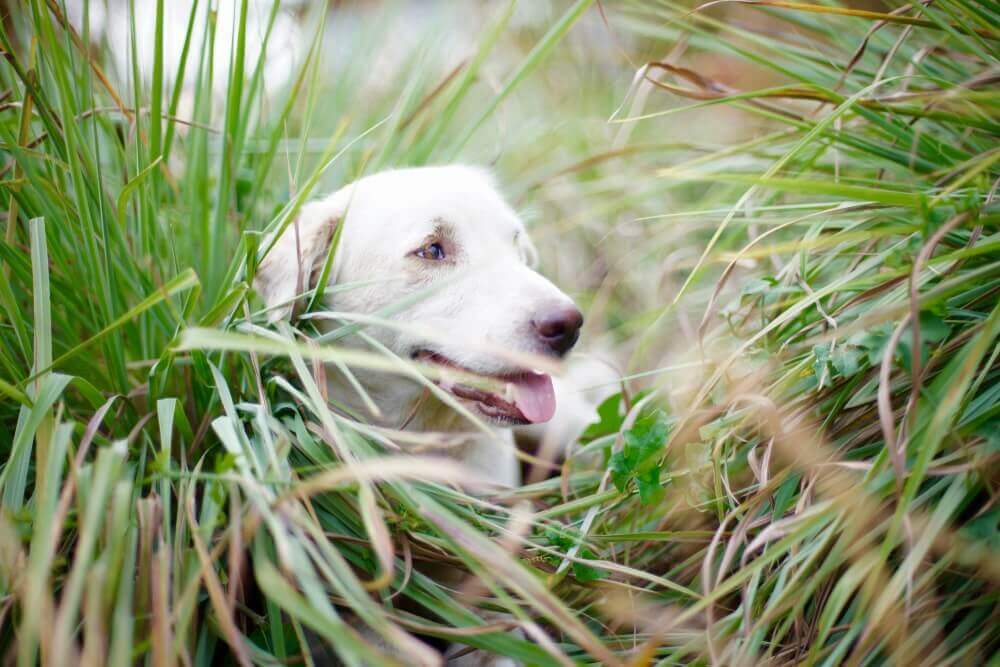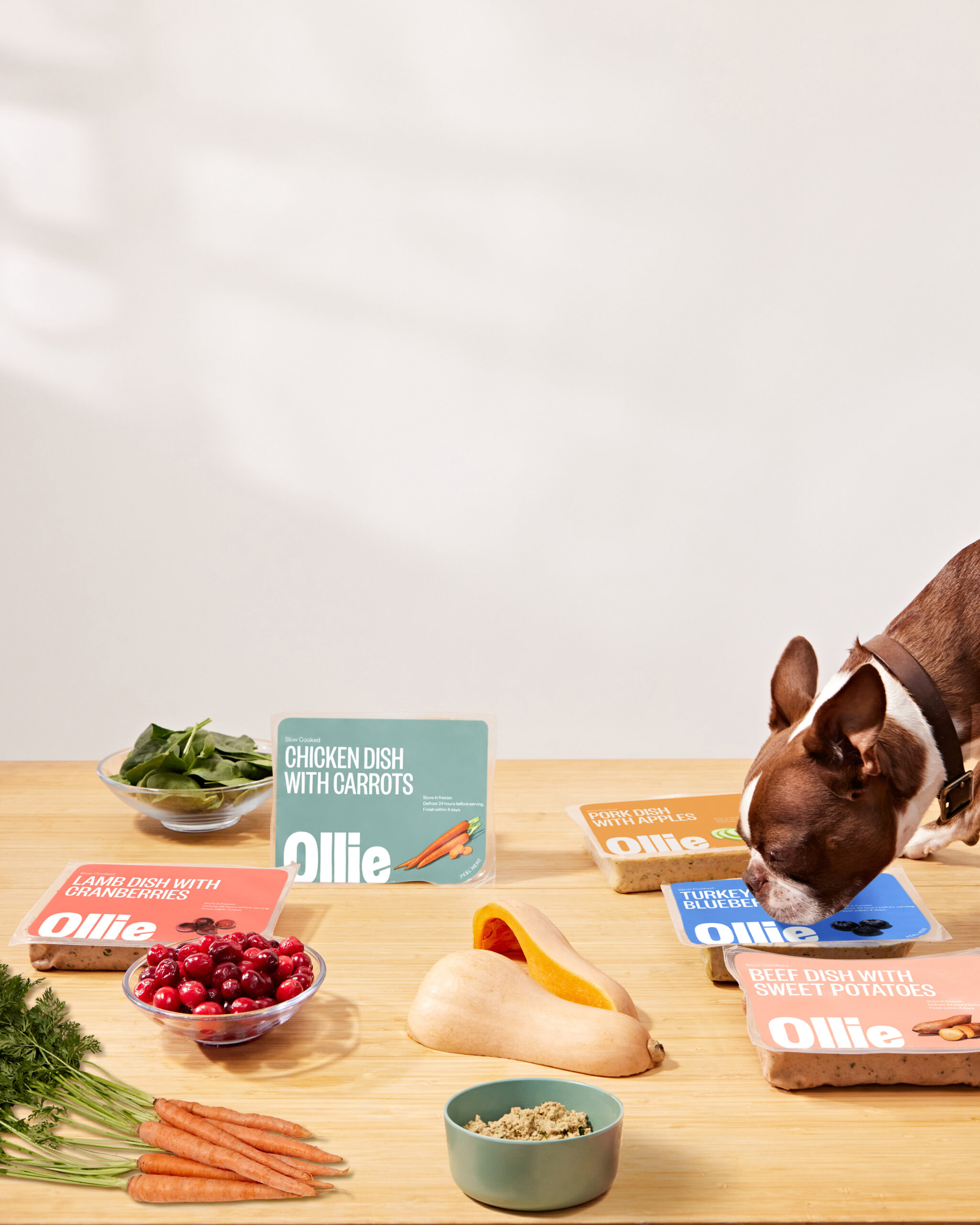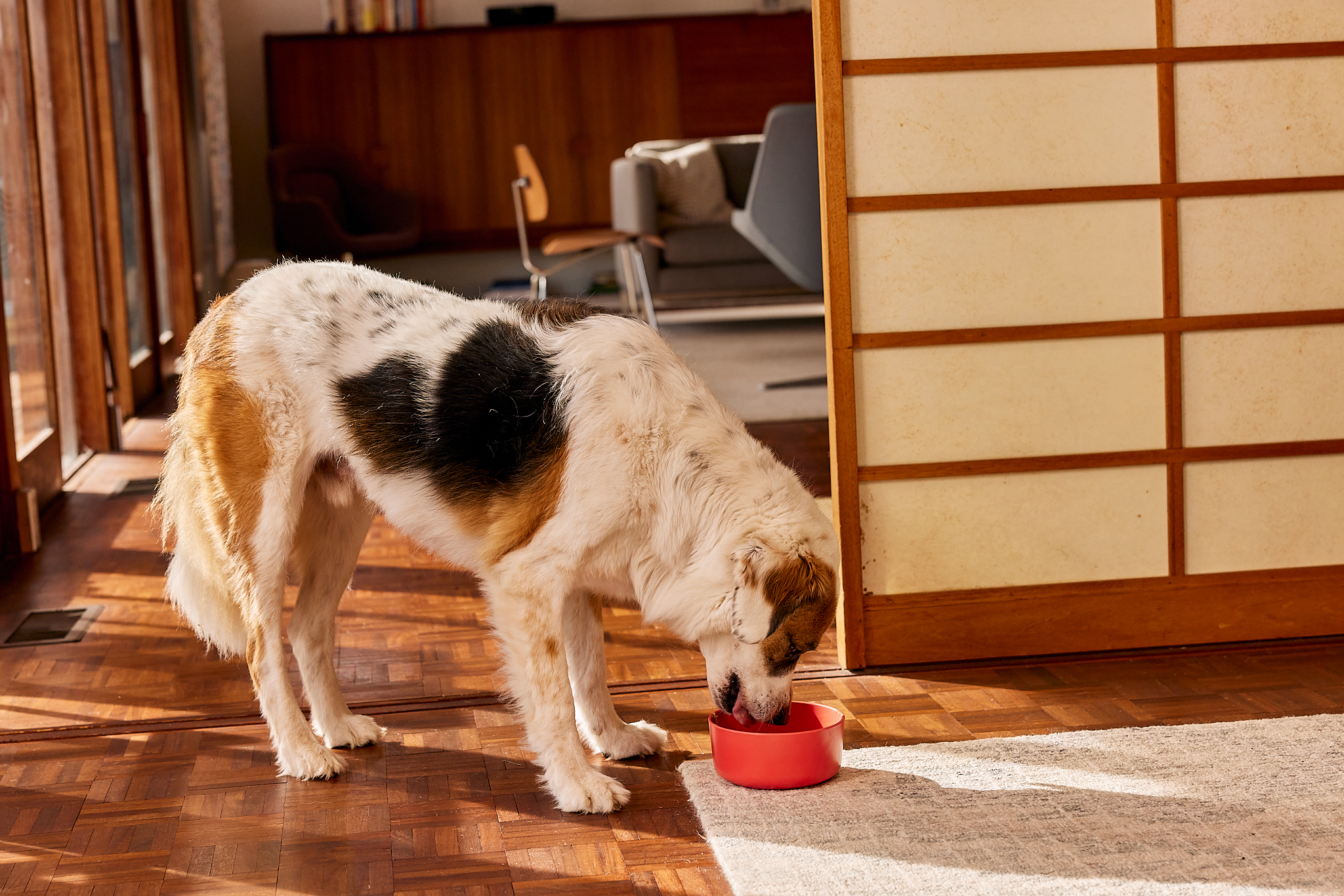Hey Ollie blog readers! We’re offering you an exclusive 60% OFF your starter box! Try now!
Lemongrass is a common ingredient in both Thai and Vietnamese cuisines. While you probably are not sharing your takeout with your pet, you may be wondering if it is safe or healthy for your pet to enjoy this exotic flavor.
What is Lemongrass?
Lemongrass is a member of the grass family but there are actually many varieties. These Include, “Cymbopogon citratus, Cymbopogon flexuosus and Cymbopogon nardus or C. winterianus. Cymbopogon citratus, which has a large bulb similar to a scallion, is often found in Thai cooking. Cymbopogon flexuosus, also called Cochin Grass or Malabar Grass, is native to India, Sri Lanka, Burma, and Thailand and also used in cooking.” Cymbopogon nardus is actually where citronella oil is derived from.
Regardless of the variety in the kitchen, it can be used fresh, dried and/or powdered and as an essential oil.
Can Dogs Eat Lemongrass?
Dogs should not eat lemongrass. While small amounts may not be toxic, lemongrass can cause digestive upset if your dog eats too much. It contains compounds that can irritate the stomach and lead to vomiting, diarrhea, or abdominal discomfort. The fibrous texture also makes it hard for dogs to digest, especially in larger pieces.
Fresh lemongrass growing in gardens or used in cooking can be tempting for curious pups, but it’s best to keep it out of reach. Lemongrass essential oil is even more concentrated and should never be given to dogs or applied to their skin without veterinary guidance.
If your dog accidentally nibbles a small piece of lemongrass, they may be fine, but keep an eye out for any changes in behavior, appetite, or stool. If you notice symptoms or if they’ve eaten a large amount, call your vet. While lemongrass might smell nice to us, it’s not a safe snack for your dog.
What you need to know when it comes to your dog and lemongrass
While it is safe to have lemongrass in your garden even if you have a dog, you do not want your dog to eat it. Dogs are not herbivores and their digestive systems are not designed to handle large quantities of plant matter. Eating an excessive amount of lemongrass can cause an intestinal blockage. If you suspect your pet has eaten all of your lemongrass plants (either from your garden or stolen off the counter) you will want to call your vet. The vet will be able to help you monitor your pet to make sure he doesn’t suffer from a blockage or other symptoms of lemongrass poisoning.
Citronella is derived from a different species of lemongrass (Cymbopogon nardus). While your pet should not eat citronella, it can be useful as a flea, tick and mosquito repellant. You’ll want to be sure to use citronella products specifically designed for dogs and follow the instructions carefully. If you have any questions consult the manufacturer or your pet’s doctor.
Additionally, due to its pleasant smell and flea and tick repellant nature, Lemongrass essential oil is sometimes used in soaps, shampoos or for both humans and pets. If you use the shampoo or bug repellent as directed it is perfectly safe for your pet. Be sure to follow product directions carefully and do not use more frequently than recommended.
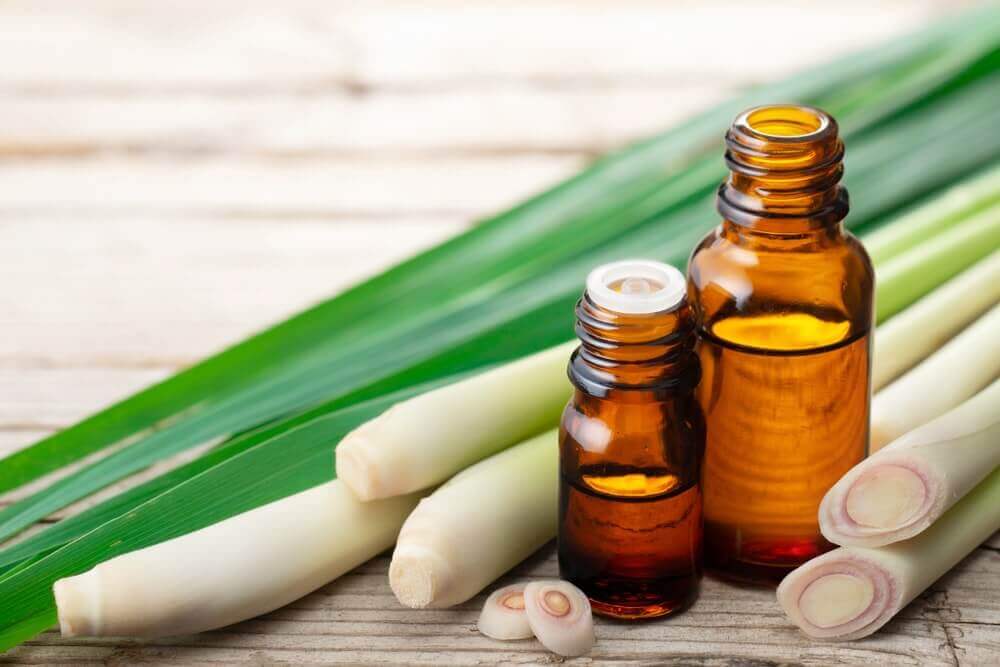
So, can my dog be poisoned by lemongrass?
The short answer to this is yes, it can have some harmful effects if ingested. You’ll want to watch your pet closely if you think they’ve eaten too much lemongrass, especially the dried or woody stalked variety as dogs stomachs are not designed to digest that much vegetable or grassy matter.
Most of the time the issue is a blockage or complication since they can’t digest the lemongrass properly. If you’re seeing other signs of toxicity in your dog it could be that you have misidentified the plant or that the plants were treated with pesticides or that your pet has also eaten another toxin.
The other important consideration is the form of lemongrass your pet consumed. While the grass itself isn’t toxic and the larger concern is their ability to digest it, the essential oil can be toxic to your pet depending on which variety of lemongrass it was distilled from. Essential oils are highly concentrated and therefore your pet will need to consume only a little for it to have a toxic effect.
If you think your pet may have lemongrass poisoning, the signs you’ll want to look for include:
Vomiting
An obstruction caused by the hard fibrous part of the lemongrass or another irritant could cause your dog to vomit.
Diarrhea
The upset stomach from eating too much lemongrass or a pesticide on the plan could cause your dog to have diarrhea.
Abdominal discomfort
The discomfort may come from not being able to digest lemongrass or something else your pet has eaten.
Enlarged abdomen
An obstruction from eating large pieces of lemongrass can cause your pet’s abdomen to enlarge. This may need surgical intervention to remove the obstruction.
Straining or struggling to defecate
Constipation may also be caused by a blockage making it impossible for your pet to relieve himself.
If your pet is experiencing these symptoms you’ll want to take them to the vet immediately to get treatment.
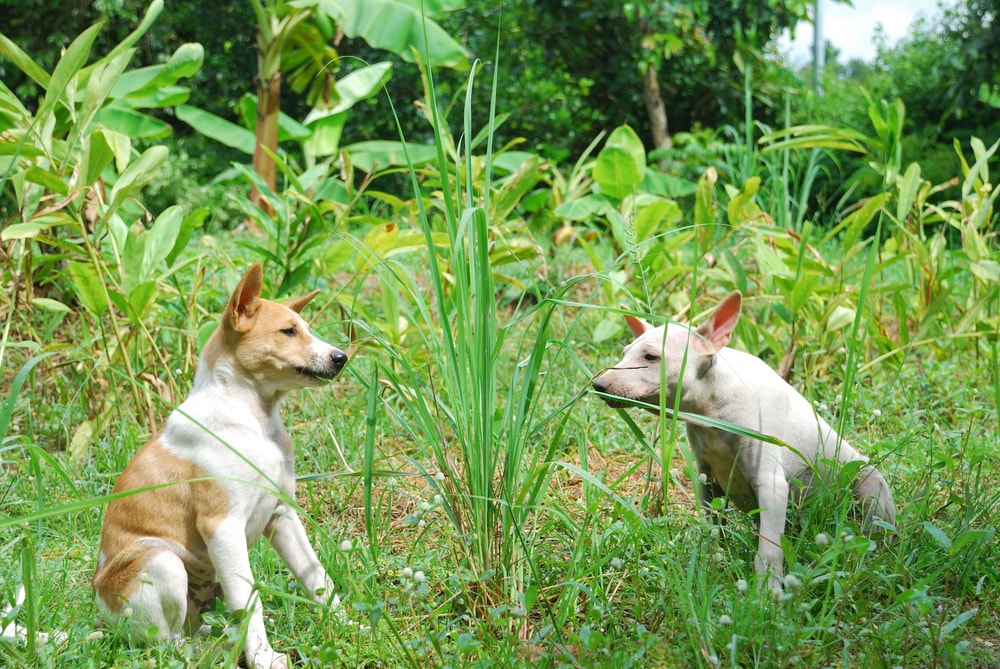
How to treat lemongrass poisoning
When you get to the vet your doctor will do a quick exam of your dog and possibly run blood tests and take some X-rays. These tests will help the doctor determine the appropriate treatment plan. The plan could include:
-
- Providing IV fluids
- Therapy to flush out the mass if an intestinal blockage is seen
- Inducing vomiting if another toxic substance is detected and it is indicated
- Activated charcoal to bind and remove toxins
- Surgery to remove the blockage if it is severe enough
Once your pet is stabilized your vet will give you instructions for how to help your pet recover. These may include providing a prescription or bland diet to help keep his stomach settled as he recovers. It also makes it easier to give essential nutrients without upsetting his stomach. Pain medication might also be prescribed if surgery was performed, and you may be instructed to remove the lemongrass from your garden, especially if your pet is gravitating towards it.
The Ollie blog is devoted to helping pet parents lead healthier lives with their pups. If you want to learn more about our fresh, human-grade food, check out MyOllie.com.
Tagged As:

The nutrition your dog needs,
the food they want.

Enjoying our articles? Subscribe our Newsletters and get new articles directly to your inbox
You might also like
4 June 2025
7 MINS READ
Feed Their Future: Why Human-Grade Food Matters for Puppies
Among the many decisions you’ll make as a new pet parent, choosing the right food for your growing puppy is one of the most important. The quality of your puppy’s diet can impact their developme…
by Ollie Pets
4 June 2025
6 MINS READ
How Does Fresh Dog Food Compare to Homemade?
As pet parents become more conscious about what goes into their dog’s food bowl, many are considering alternatives to traditional kibble. Two increasingly popular options are fresh dog food and ho…
by Ollie Pets
4 June 2025
5 MINS READ
How Can Fresh Dog Food Help with Weight Management?
Maintaining a healthy weight is one of the most important aspects of your dog’s overall health and longevity. Being overweight or underweight can result in health complications and conditions that…
